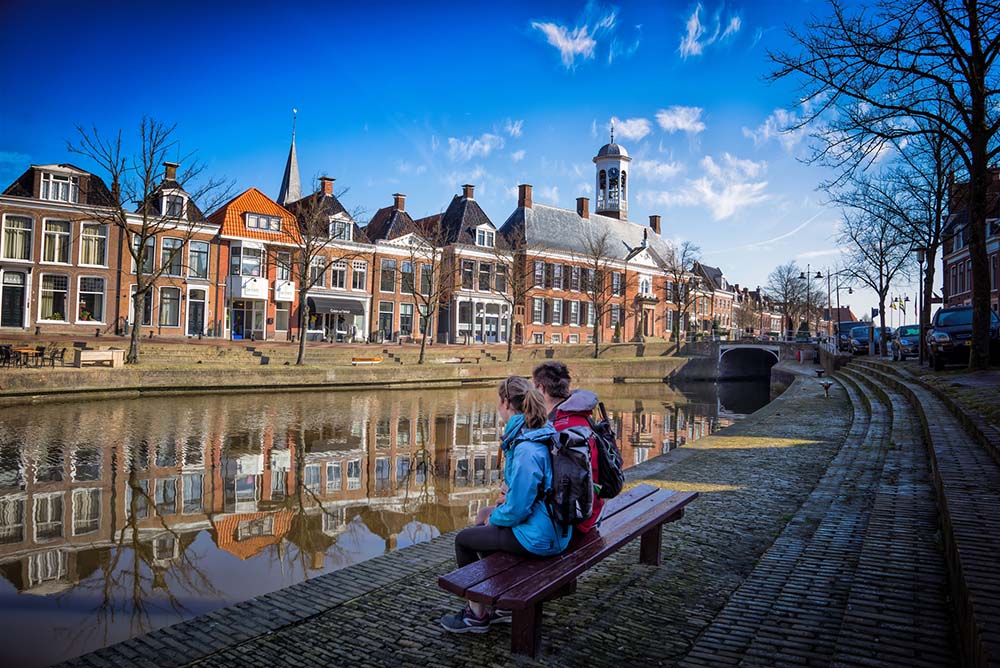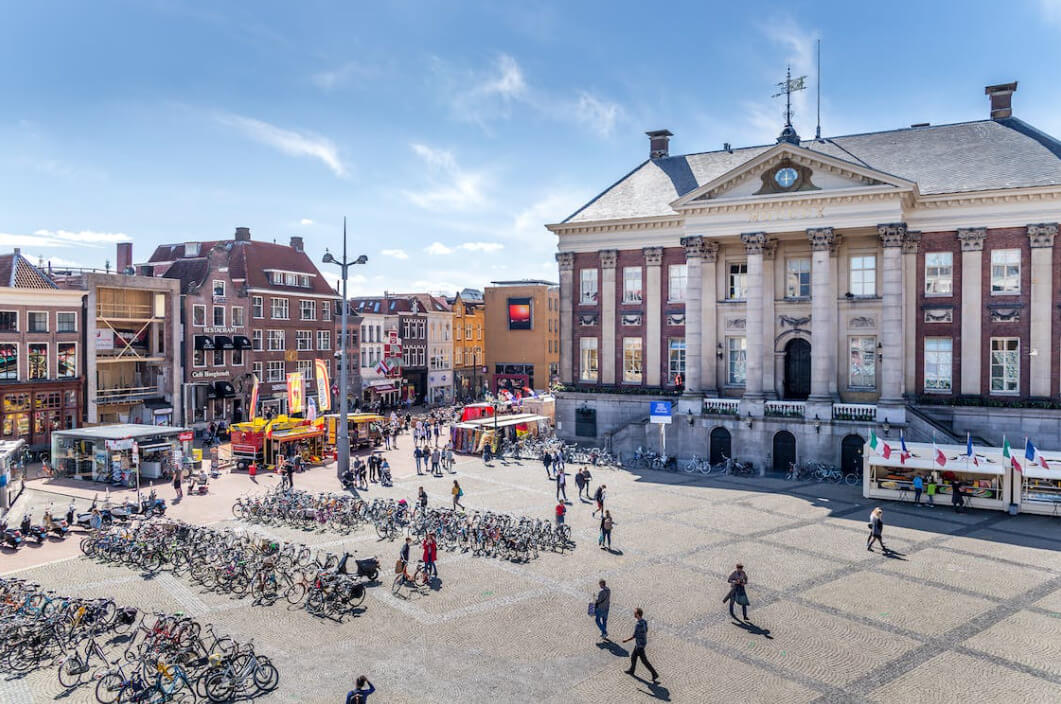EngD in Autonomous Systems: Automated detection of invasive aquatic plants

Job description
Are you a master's graduate interested in developing automated systems for aquatic plant management? Join the Engineering Doctorate (EngD) program in Autonomous Systems, where you'll work on cutting-edge environmental projects. This is your opportunity to make an impact!
This two-year post-master’s program offers a blend of academic training and hands-on experience. You'll collaborate with Harkboot.nl and other partners to develop AI-driven sensor systems and autonomous solutions for aquatic plant detection, classification, and control.
EngD program overview
In the first year of the EngD program, trainees receive comprehensive training in systems engineering, covering mechanical engineering, computer science, artificial intelligence, and specialized topics like cyber-physical systems, robotics, and nonlinear control systems. The first year also includes a 10-week project module, allowing trainees to apply their skills to real-world challenges.
In the second year, trainees complete a one-year internship, collaborating with Harkboot.nl and partners to develop autonomous systems for aquatic plant management. This hands-on experience further enhances their problem-solving abilities.
The program also focuses on professional development, offering training in communication, project management, teamwork, and research methods, with opportunities to take advanced courses at the University of Groningen or 4TU.
Project description
Harkboot.nl specializes in the management and removal of invasive aquatic plants, including root-based species like Cabomba and Myriophyllum heterophyllum, using their signature "hark method." Traditional plant removal techniques can sometimes spread invasive species, prompting Harkboot.nl to develop an advanced ecological management protocol incorporating innovative inventory methods to control aquatic plants.
This project aims to enhance Harkboot.nl's protocol by integrating technology for the automated detection, classification, and management of invasive aquatic plants. The system will use sensors mounted on drones and autonomous vessels to map plant aquatic species, employing AI-based algorithms to identify and classify invasive species in water bodies. Autonomous removal operations will then be directed to precisely manage invasive aquatic plants, minimizing the impact on native species. Real-time data will be stored in the cloud, accessible to environmental agencies and water boards, enabling ongoing, effective management.
Organizations
The University of Groningen, founded in 1614, is renowned globally for its exceptional education and research. With around 34,000 students and researchers, it fosters a dynamic environment for academic growth and collaboration. The university is one of Europe's leading research institutions, working with top universities worldwide to share knowledge and maintain its position as a hub for innovation and learning. Located in the vibrant city of Groningen in northern Netherlands, it attracts talent from across the globe.
Harkboot.nl, a Dutch company, focuses on innovative solutions for managing invasive aquatic plants. Harkboot.nl combines ecological management strategies with advanced inventory techniques and aims to integrate cutting-edge technologies such as sensors and AI for enhanced detection, classification, and control of aquatic plants. The company collaborates with partners like KOWW.nl to support biodiversity and ecosystem balance in Dutch waterways.
Qualifications
The ideal EngD candidate for this position should have a Master's degree and the following qualifications:
1. Educational background: Master's in Environmental Engineering, Robotics, Computer Science, or a related field, with desirable knowledge of aquatic ecosystems and invasive species management.
2. Technical proficiency: Experience with autonomous systems (drones/underwater vehicles), AI, machine learning, sensor fusion, and cloud-based environmental monitoring systems.
3. Analytical and problem-solving skills: Strong ability to apply AI and analytical methods to solve environmental management challenges, especially for invasive species control.
4. Project management and team collaboration: Experience managing interdisciplinary projects, coordinating tasks, and collaborating with diverse teams and stakeholders.
5. Adaptability and continuous learning: Openness to evolving project requirements and willingness to learn new methodologies in AI, robotics, and environmental systems.
6. Communication skills: Strong written and verbal communication in English, with the ability to present findings and collaborate with international teams.
7. Sustainability and environmental insight: Knowledge of sustainable practices in environmental management and a passion for preserving biodiversity through innovative technology is a plus.
Conditions of employment
We offer you in accordance with the Collective Labour Agreement for Dutch Universities
- A two-year full-time EngD position at RUG offers a challenging role in a dynamic, multidisciplinary atmosphere.
- Full employment status with pension and healthcare benefits.
- a salary of € 2,844 gross per month (salary scale TOIO)
- 8% annual holiday allowance.
- 8.3% year-end bonus.
- First, you will get a temporary position for one year with the option of renewal for another year; the contract's extension is contingent on sufficient progress in the first year.
Application
If you are interested in this opportunity, please submit your application using the “Apply now” button below. Please include the complete list of documents indicated here below. Incomplete applications will not be considered.
1. A detailed motivation letter including the candidate's aspirations, qualifications, and suitability for the program.
2. Curriculum Vitae
3. Relevant MSc and BSc diplomas
4. MSc program grade transcripts: They should verify the candidate's educational qualifications and academic performance.
5. Proof of English proficiency: See full description of the conditions and exemptions on the program page
6. At least one reference contact (name and research institute)
You may apply for this position until 22 December 11:59 pm / before 23 December 2024 Dutch local time (CET) by means of the application form (click on "Apply" below on the advertisement on the university website).
Interviews are scheduled for January 2025
The University of Groningen strives to be a university in which students and staff are respected and feel at home, regardless of differences in background, experiences, perspectives, and identities. We believe that working on our core values of inclusion and equality are a joint responsibility and we are constructively working on creating a socially safe environment. Diversity among students and staff members enriches academic debate and contributes to the quality of our teaching and research. We therefore invite applicants from underrepresented groups in particular to apply. For more information, see also our diversity policy webpage: https://www.rug.nl/(...)rsity-and-inclusion/
Our selection procedure follows the guidelines of the Recruitment code (NVP): https://www.nvp-hrnetwerk.nl/nl/sollicitatiecode and European Commission's European Code of Conduct for recruitment of researchers: https://euraxess.ec.europa.eu/jobs/charter/code
We provide career services for partners of new faculty members moving to Groningen.
Unsolicited marketing is not appreciated.
Information
For information you can contact:
- Laura Florez-Sampedro, program coordinator, autonomous.systems@rug.nl
Please do not use the e-mail address(es) above for applications.






